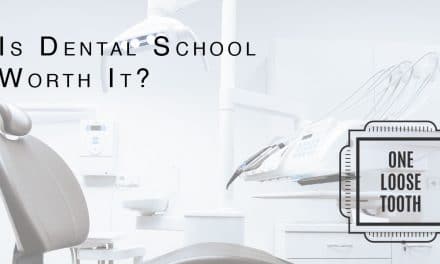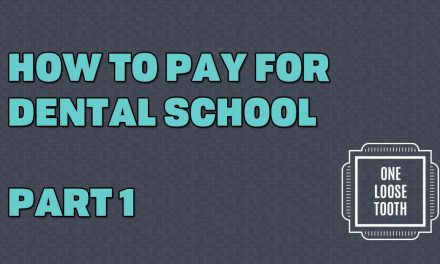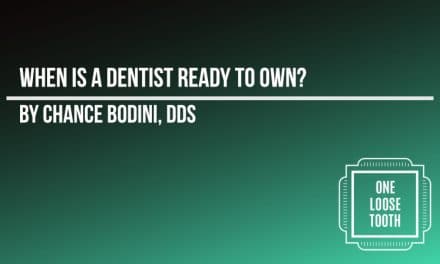Deciding to complete a dental residency program or go straight into private practice as a young graduate is a tough decision.
I think that what should be said before we go any further is that the majority of dentists with less than one year of experience enter a corporate environment, not private practice. The reality is, is that senior dental students (even young doctors who completed a residency) are viewed as ill-prepared to manage the volume needed to be considered a profitable hire right out of school. Last I remember hearing on Howard Farran’s podcast is that about 70% of senior dental students who enter the workforce end up working for a corporate chain during their first year (if anyone has actual data on this please leave a link in the comments below or send me an email via the contact page).
With that said, I think a more appropriate scenario for senior dental students is to weigh the pros and cons of completing a residency versus working for a corporate chain which I will refer to as “practice” for the remainder of this post.
Pros to entering practice immediately:Â
Increased compensation (you will make more money).
More experience in bread and butter dentistry (you can do more RCTs, crowns, bridges, fillings, and maybe dentures in 6 months of practice than you will complete in a 12 month residency program). For example – about 6 months out of school I had completed more than 100 units of crown and bridge and had probably placed a thousand direct restorations.
Cons to practice – a pace a young dentist may not be ready for. Little mentorship (in my experience). Too little knowledge about people, business, and dentistry – new grads know just enough to be dangerous. New grads are also easier to push around (dentists and office managers can take advantage of their naïveté).
Pros to a residency: Exposure to new materials and methods. A good residency provides education in multiple disciplines that would be expensive to obtain on your own via CE. Ability to practice immediately (no need to wait for a license/obtain malpractice insurance, DEA, etc. – July comes and you start practicing again). And the big one – Limited liability during your first year of practice and experienced practitioners available to help you troubleshoot your diagnosis and technique – especially when it comes to surgery. There’s also an opportunity to learn more about sedation dentistry if that’s something that interests you.
Cons to a residency:Â Very difficult to tell if a residency is good or bad until you’re a few months in.
12 months isn’t enough time to treatment plan and complete enough of the big cases you need help with – while having one or two cosmetic cases under your belt or restoring a tough case with a loss of vertical dimension is better than nothing, you certainly have a lot more to learn – things you could have been learning in while practicing and complementing your education with high quality, focused CE and a better pay check (another con to a residency is the decreased income).
If you’re thinking about completing an AEGD or GPR, read this post and listen to the five interviews I recorded with 6 dentists who completed a residency program: http://http://oneloosetooth.com/difference-aegd-gpr/





